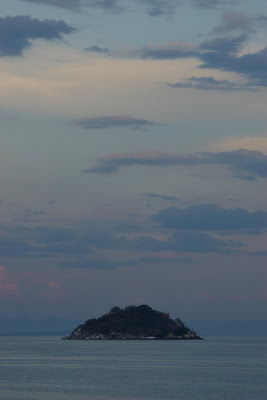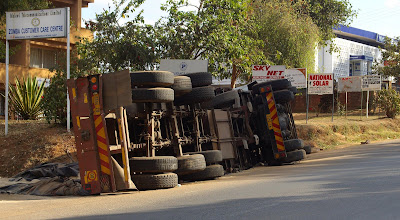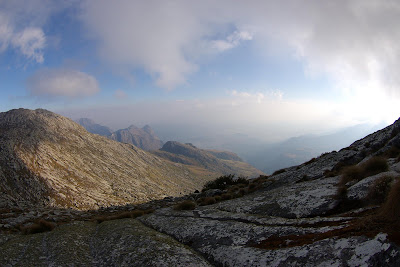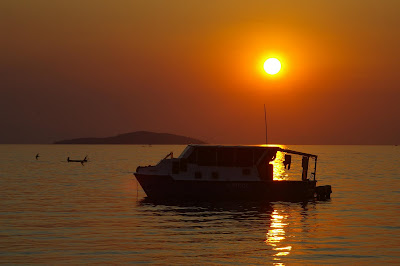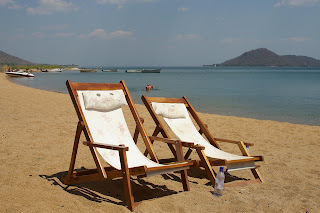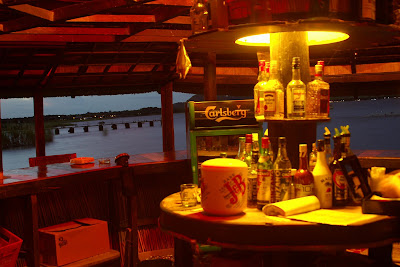
Thick seafood bisque, authentic foie gras, fillets of fresh fish in a rich cream sauce, rare sliced fillet steak with rosemary potatoes and garlic dusted beans, chocolate mousse and a selection of imported French cheese… six courses all washed down with a nice glass of South African shiraz of course. Leaving the luxury of Cape Mac Lodge - a bit of a splurge for New Years Eve - we then sit listening to international DJs string a line of house music tunes together, cooling down after our countdown dancing as we gaze out across the becalmed surface of Lake Malawi, a black mirror to the starry night sky with a profusion of small scale fireworks and flares punctuating the darkness from the various beachside parties and luxury boats that cater for the wealthy azungu, or white people.
A mere two metres from our party a small group of local villagers collect, their wide eyes agog at the ridiculous wealth and relative extravagance that is occurring no more than a stones throw from their houses, held at arms length by the single rope drawing a line in the sand between ‘them’ and ‘us,’ literally. Two party organizers bring a single crate of soft drinks down to the horde of locals fixated on our revellings, and a crazed rush for this small offering has the locals almost tearing the bottles from each others grasp. They guzzle them with maniacal intent, then the bouncers round up the bottles and offer them a polite but firm reminder that they will be staying behind the line… tonight, and probably forever.
I once read that Malawi takes the dubious honour of having the second greatest wealth disparity in the world. The great divide that exists between the disastrously poor and the comparatively wealthy here is something which needs to be experienced to be understood, and sitting there watching the desperation that the single crate of soft drinks created amongst those locals as we partied the night away was a rather sobering reminder of the country we now live in. Despite decades of firm, but essentially peacefully rule whilst others around it languished in the blood of civil war, coups, ruthless dictators and the liberation from western rule, Malawi remains one of the poorest countries in the world.

Cape Maclear, the biggest backpacker strip along the southern shores of Lake Malawi, is a stunning stretch of unbroken white sand backed by lush green hills. The many resorts, or ‘lodges,’ are walled compounds complete with bars, restaurants, different accommodation options and the like, that cater to varying levels of tourist wealth. These lodges sit side by side with the local thatched-roofed village huts, with locals and tourists alike using the beach and water for their activities together. Yet there couldn’t be a more dramatic contrast in standards of living. The locals, barely being able to afford more than their plate of nsima for the day, wash clothes by day and fish by night, eking out a living from the resources around them. The tourists on the other hand throw gin and tonics on their tab as they laze in the sun, using the water to swim, dive or waterski. Sure there are exceptions, but on the whole this is the black and white of Cape Mac.
While walking through the village one morning – something we had until now neglected to do in several visits here – Heth made a very interesting observation. The vast majority of locals here, and indeed throughout most of this country (and those surrounding it), are not doing anything to involve themselves in the wealth of tourist dollars that bathe this part of Malawi every day. It is the expats and white or Indian Malawians who own all the businesses and who reap all the rewards of the tourist dollar. In comparison, if you walk down the street in any tourist geared village or town in Asia, the locals are bending over backwards to make a rupee or baht or two from you in any which way they can… local eateries, small souvenir shops, tours, transport, laundry, bottled water. You name an idea or money making scheme, and the locals there have already thought of it several times over. So what is it that stops all but a few from developing a way of earning a living from the tourism that surrounds them in ever increasing numbers? A lack of decent education? Absolute poverty? Becoming over-accustomed to and reliant on a system of aid and hand outs? Cultural beliefs or taboos? Perhaps, and I say this with extreme caution, they simply do not have the inherent initiative to get out there and do something creative or plan effectively enough into the future? Which ever it is – and I dare say it is a murky amalgamation of all of the above – the great divide is rarely more evident than in this backpacker haven of Cape Maclear.













